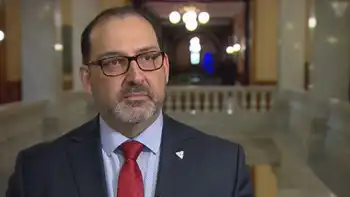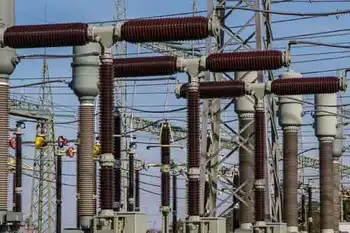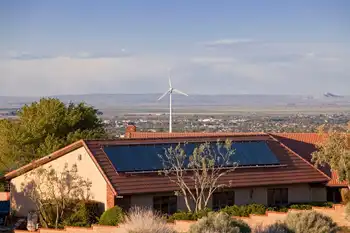Newfound Hope for Quebec-Newfoundland hydro project
QUEBEC -- - The blackout that recently rattled much of North America has sparked new optimism for an electricity project between Newfoundland and Quebec that has been on and off for two decades.
Untapped hydroelectric potential in Labrador could provide Ontario and the northeastern United States with a much needed reliable new source of energy, according to Newfoundland Premier Roger Grimes.
Grimes said recently the blackout could focus new attention on the Lower Churchill Falls project that has been at the negotiation stage since the early 1980s.
"I think (the blackout) reminded everybody again of some of the fragile issues that are there with respect to energy generation and transmission on the North American continent," Grimes said in St. John's.
However, with a Newfoundland electorate still angry over the last energy deal with Quebec 35 years ago, the Newfoundland government is not interested in a new agreement until after the next election, likely this fall.
"We fully intend to go back to the Lower Churchill project following the election," Grimes said. Quebec Premier Jean Charest and Natural Resources Minister Sam Hamad have said they will wait for Newfoundland's government to have a fresh mandate before pursuing talks.
Since the early 1980s, Newfoundland has talked to Quebec about a $4-billion Lower Churchill project to produce about 2,000 megawatts of electricity. The power represents about 10 per cent of Ontario's daily summertime usage.
However, economist Jean-Thomas Bernard said the development of Lower Churchill Falls will not come close to solving Ontario's electricity problems.
While Ontario does have a shortage of electricity, the recent blackout was caused by transmission problems, he pointed out.
He also said Ontario's shortage needs a more immediate solution. If several dormant nuclear reactors are never turned back on, Bernard said new natural gas generating stations would provide a quicker solution.
"A decision has to be made on whether to mothball the nuclear sites," said Bernard, a professor at Laval University in Quebec City.
"If that's the decision, Lower Churchill Falls would not provide the massive volume of electricity that would be needed."
Ontario gas-fired generators could produce as much electricity at about the same cost as building a new dam along with a 1,300-kilometre transmission line from Labrador to Quebec, he said.
By the time the new Churchill power station would come online in eight or 10 years, Quebec will likely need the extra 2,100 megawatts of electricity.
Newfoundland Energy Minister Walter Noel has said his province might be able to sell power directly to customers in the rest of North America, even though it would have to be transmitted through Quebec.
The Newfoundland government has asked for federal help in financing the project. A royal commission released in June suggested the tactic, both to help defuse lingering anger in Newfoundland over the last hydro deal with Quebec and to reduce Quebec's negotiating power.
The original Churchill Falls project was completed in 1972 with 5,000 megawatts of power production. It remains one of the largest power installations in the world but Newfoundland makes only a pittance from the dam while Quebec has reaped billions in profits.
Newfoundland estimates that $850 million in extra profits caused by increased energy costs end up in Quebec's coffers each year because the rate Newfoundland receives for is locked through 2041.
Newfoundland has challenged the deal in various courts, including the Supreme Court of Canada.
Bernard said anyone waiting for Labrador hydro development should be prepared to wait longer than the next Newfoundland election.
"The bottom line is that there is one big obstacle between Labrador and all these electricity markets they keep talking about in the United States and Ontario. It's Quebec.
"There are reasons this deal has been talked about for 25 years. If it was a great deal and extremely economical, it would be done by now.
"Even if they decide to proceed finally, and if they somehow manage to convince the people of Newfoundland, there will be environmental and aboriginal concerns that need to be satisfied.
"Gas will be a much better option for Ontario."
Related News

Ontario Energy minister downplays dispute between auditor, electricity regulator
TORONTO - The bad blood between the Ontario government and auditor general bubbled to the surface once again Monday, with the Liberal energy minister downplaying a dispute between the auditor and the Crown corporation that manages the province's electricity market.
Glenn Thibeault said concerns raised by auditor general Bonnie Lysyk during testimony before a legislative committee last week aren't new and the practices being used by the Independent Electricity System Operator are commonly endorsed by major auditing firms.
"(Lysyk) doesn't like the rate-regulated accounting. We've always said we've relied on the other experts within the field as well, plus the provincial controller," Thibeault said.
#google#
"We believe that we are following…




